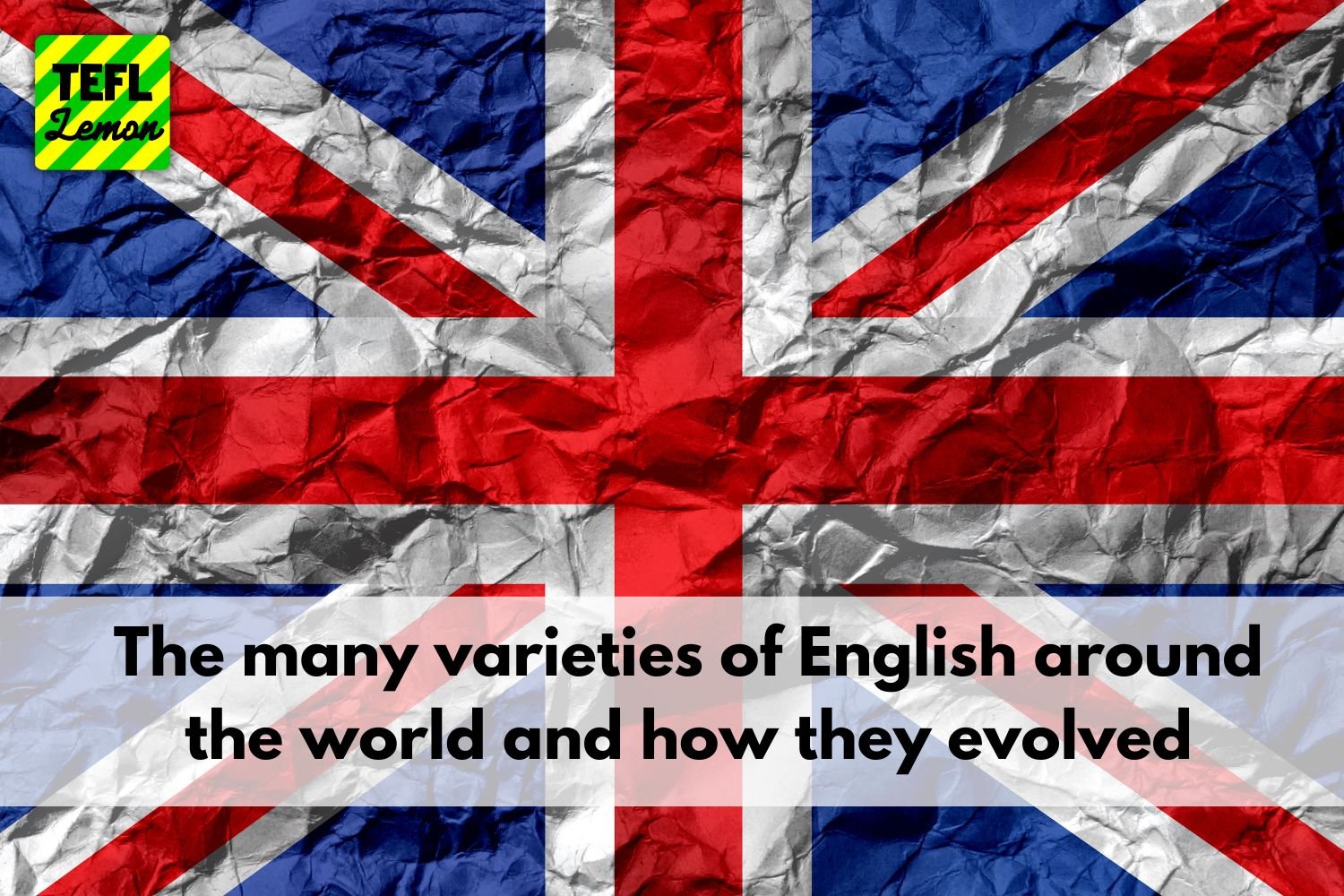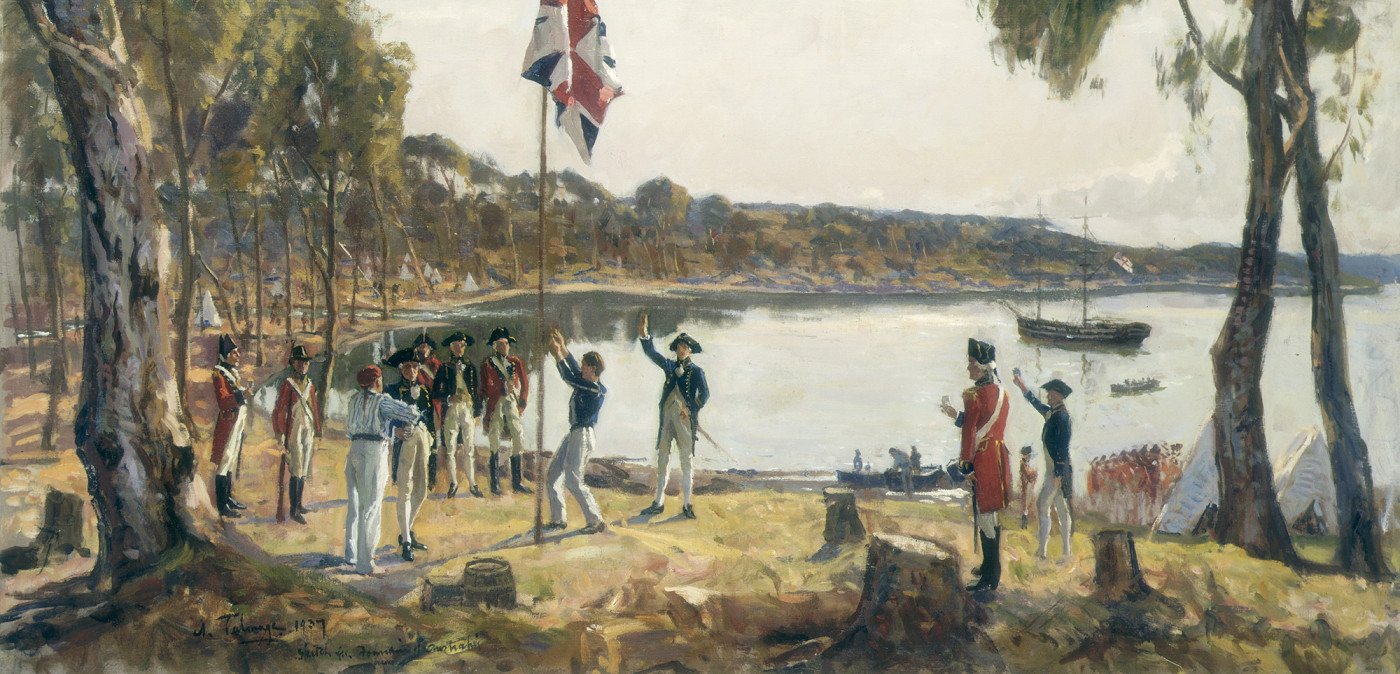The many varieties of English around the world and how they evolved
When I was studying my MA in Applied Linguistics and TESOL, I studied a module called ‘World Englishes’. When I first saw this module, I remember thinking ‘what the hell is World Englishes??’ To me, I had never considered that there were different Englishes in the world. I had never heard this phrase before, even though I’d been teaching for over 15 years already! To me, English was the same, just with different accents, and some variations in vocabulary i.e. cab/taxi, pavement/sidewalk, lift/elevator, etc. How naive I was!
As the module progressed, I came to learn that there are a large number of different varieties of English, all with very unique characteristics and charm. I came to understand that no variety of English took precedence over another, and that all should be equally respected. But what exactly are World Englishes, and how did they come to evolve? Where, when, and how did these splits happen from the original English from the United Kingdom? This article looks at the many varieties of English around the world and how they evolved.
World Englishes and the start of it all
The English language actually has a fascinating history of development, with variations and dialects emerging in different regions across the world due to colonisation, the rise of popular film and music, and being the language of governmental control in many regions. The language has evolved over time, incorporating elements from other languages and cultures, and has been shaped by social, political, and economic factors. We explore the development of English varieties and how they have come to exist today.
Old English (450-1100CE)
The English language's earliest form is known as Old English, spoken in what is now modern-day England and Scotland from around the 5th century AD. Old English was a Germanic language and was heavily influenced by Latin and Scandinavian languages due to the frequent invasions of Britain by Germanic and Viking tribes. One big reason that English has such crazy spelling of its words
Middle English (1100-1500CE)
The next stage of the English language's development is known as Middle English. It began around the 11th century and lasted until the end of the 15th century. During this period, the Norman Conquest of England in 1066 led to a significant French influence on the language, which brought in many new words and grammatical structures. Middle English is often considered the most significant period of change in the English language, and many of the basic features of modern English were developed during this time.
Early Modern English (1500-1700CE)
Early Modern English began around the 15th century and lasted until the end of the 17th century. During this period, English went through significant changes due to the Renaissance, the printing press, and the English Reformation. Early Modern English saw the emergence of new words and the standardisation of grammar and spelling.
Modern English (1700CE-today)
Over the last 300 years, the UK underwent very aggressive expansion policies around the world, taking land for king and country in all parts of the globe. From Canada to Hong Kong, from Australia to India, from the Falklands to Jamaica, from America to South Africa, the sun never set on the British Empire, and of course, the English language went with this expansion. English became the official language of local governance, within banks, schools, and in local business. Books were printed in English, as were local laws, and decisions. The dawn of the film age saw movies made in English, Hollywood creating the first global stars, all speaking English. English became the language of popular music, from Elvis Presley to The Doors, Madonna to Michael Jackson.
How did varieties of English develop?
But the local language and culture would have huge effects on this invading language. Local and specific flora and fauna native to the area would be absorbed into the burgeoning local English variety. The same goes for local places, rivers, geographical features and the way of life. The accent of the native language affected the pronunciation of the English variety in a given area, and slowly, the English spoken in one part of the world would greatly differ from others in lexis and pronunciation. Jamaican English today is a completely different variety of English from Indian English, for example. As time went by, these World Englishes kept evolving, changing, branching off from the original today, leaving today a rich and diverse linguistic landscape in the English language. Truly a collection of World Englishes.
Trainee teachers studying the TEFL Lemon 180-Hour Higher Certificate in TESOL study the historical emergence of English varieties and how they influence English teaching today.
Varieties of English
So, as English spread around the world, it began to develop into different varieties. These variations were shaped by factors such as geography, local customs, flora and fauna, national culture, and history. Some of the most prominent English varieties include:
British English: British English is the standard variety of English spoken in the United Kingdom. It is divided into regional dialects, such as Cockney, Scouse, and Geordie.
American English: American English is the standard variety of English spoken in the United States. It is divided into regional dialects, such as Southern and New Jersey.
Australian English: Australian English is the variety of English spoken in Australia. It has its own unique vocabulary and pronunciation.
Canadian English: Canadian English is the variety of English spoken in Canada. It is heavily influenced by both British and American English.
Indian English: Indian English is the variety of English spoken in India. It has its own unique pronunciation and vocabulary, heavily influenced by Indian languages.
South African English: South African English is the variety of English spoken in South Africa. It has been influenced by Dutch and Afrikaans, which are the country's official languages.
English is a diverse and rich language
The development of these varieties has been shaped by a variety of factors, such as colonisation, migration, and cultural exchange. As migration and international exchange continues to accelerate, this will lead to even deeper changes to English varieties. English is now spoken as a first or second language by over 1.5 billion people worldwide, making it one of the most widely spoken languages in the world.
English has a rich and complex history of development, with various stages and influences that have led to the emergence of different English varieties worldwide. These varieties have been shaped by geography, culture, and history, and each has its own unique features and characteristics. Understanding the development of English and its varieties is essential in appreciating the language's richness and diversity. I’ve come a long way in my understanding of ‘World Englishes’ since my time studying my MA. World Englishes is a fascinating result of history, political control, global aggression and conquest, and popular culture. There is certainly not ‘one’ English.
by Stuart Allen



